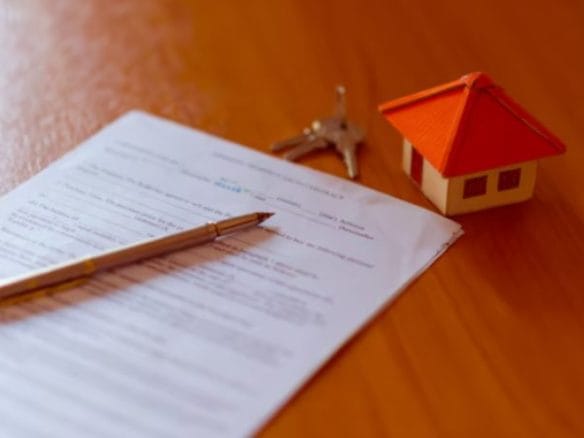Buying land is one of the biggest investments you can make, but it’s also one of the riskiest, especially in a country where land disputes and fraudulent sales are becoming alarmingly common. Imagine saving for years, finally finding your dream plot, only to later discover that the land is in an unlawful location. This can mean losing your money, facing endless legal battles, or even watching helplessly as the government demolishes any structure you’ve built.
Unfortunately, many people fall victim to these traps simply because they don’t know what warning signs to look for. That’s why in this guide, we’ll uncover five clear signs the land you’re buying might be in an unlawful location. These are practical, real-world red flags that can save you from heartbreak, financial loss, and years of regret.
If you’re planning to buy land, whether in a bustling city or a quiet rural area, understanding these signs could be the difference between a smart investment and a costly mistake. Let’s dive in.
Also Check: Top 5 Fastest Growing Real Estate Markets in Nigeria Right Now
5 Signs the Land You’re Buying Might Be in an Unlawful Location
Sign 1: Incomplete or Suspicious Land Documentation
One of the clearest signs that the land you’re about to buy might be in an unlawful location is poor or fake documentation. In Nigeria, every legally acquired piece of land must have certain documents that prove ownership and compliance with the law. These typically include:
- Certificate of Occupancy (C of O) – Issued by the government, proving legal ownership.
- Deed of Assignment – A legal document showing the transfer of ownership from seller to buyer.
- Survey Plan – A technical drawing showing the land’s boundaries and location.
- Governor’s Consent – Government approval for the transfer of land ownership.
If any of these documents are missing, forged, or inconsistent, you should treat it as a red flag. Fraudulent sellers often present photocopies instead of originals, documents with spelling mistakes, or papers that don’t match the land’s actual location.
How to avoid this:
- Always request to see original documents.
- Cross-check details with the state’s land registry.
- Hire a property lawyer or a trusted real estate professional to verify authenticity.
Sign 2: Disputes Among Claimants or Community Leaders
Another strong warning sign that the land you’re about to buy might be in an unlawful location is conflicting ownership claims. In many parts of Nigeria, it’s common to hear stories of multiple people or families claiming to own the same piece of land. This often leads to endless disputes and even violent confrontations.
A classic example is the Omo Onile problem, where different members of a family or community sell the same land to multiple buyers. In some cases, you might pay one person, only for another “owner” to show up demanding payment, or worse, threatening to reclaim the land.
Red flags to watch out for:
- Hearing different stories from different people about the land’s ownership.
- Witnessing heated arguments or hostility when asking questions about the land.
- Being told that “we’ll settle it later” instead of seeing documented proof of ownership.
How to avoid this:
- Always conduct a land history search through the local land registry.
- Ensure all key family members or stakeholders sign the sales agreement.
- Never make a payment without a legally binding document witnessed by a lawyer.
Sign 3: Location is Marked for Government Projects or Acquisition
Sometimes, the land you’re about to buy is already earmarked for government use, and once the authorities come to claim it, no amount of pleading or proof of payment will save your investment. This is called government acquisition. It happens when the government reserves certain land for projects such as road expansion, railway lines, schools, hospitals, pipelines, or industrial layouts.
The most dangerous part?
Many buyers only find out after they’ve built on the land, and then they’re forced to watch as bulldozers demolish their property without compensation.
How to know if land is under government acquisition:
- Visit the state’s Ministry of Lands and request a land status check.
- Ask for a red copy survey plan, which can reveal if the land is under acquisition.
- Beware of sellers who discourage you from “bothering with government verification.”
How to avoid this:
- Always conduct a government acquisition check before paying.
- Work with licensed surveyors who can interpret survey plans correctly.
- Avoid “rush sales” where the seller pressures you to pay before verification.
Also Check: Safe Locations to Build a Home Away From Flood Zones in Nigeria
Sign 4: The Price Seems Too Good to Be True
When you find land priced far below the average market value for that area, you should pause and ask yourself why. In many cases, overly cheap land is cheap for a reason, and that reason might be that it’s in an unlawful location or involved in legal disputes.
Fraudulent sellers often use tempting prices to lure unsuspecting buyers. They might claim they’re selling quickly because they need urgent money, or because they’re “relocating abroad.” While this can sometimes be true, in many cases, it’s simply a tactic to get your money before you discover the truth.
Common scenarios include:
- Land located in a government-acquired zone.
- Land involved in unresolved court cases.
- Land with no valid title documents.
- Land in flood-prone or high-risk environmental areas.
Red flag: If the seller is offering you land in a prime location at half the price of similar plots nearby, you need to be extra cautious.
How to avoid this:
- Research the current market price for land in that area.
- If the price is too low, treat it as a warning, not a blessing.
- Always verify ownership and status before committing funds.
5. No Access to the Site or Poor Accessibility
If you can’t easily reach the land you’re about to buy, that’s a serious warning sign. In some cases, the land might be completely landlocked, meaning it has no legal right of way. This often happens when sellers carve out land from a larger property but fail to provide access routes, leaving the new buyer trapped.
Poor accessibility can also indicate the land is located in restricted areas, such as government security zones, industrial danger zones, or protected environmental reserves. Even if the land looks appealing on paper, the inability to legally access it could make it worthless.
Other red flags include:
- Land surrounded entirely by other people’s property with no public road leading to it.
- Pathways that are only informal tracks through another person’s land (which can be blocked anytime).
- Locations prone to flooding, erosion, or seasonal inaccessibility.
How to avoid this:
- Always visit the site physically before making payment.
- Ask a licensed surveyor to confirm that there’s a registered right of way.
- Avoid buying land in places that become inaccessible during the rainy season.
Also check: The Best Negotiation Tips for Getting a Lower Property Price
Final Thoughts
Buying land is one of the most significant investments you can make, but it’s also one of the easiest ways to lose money if you’re not careful. From fake documents to government-acquired plots, unlawful locations come with risks that can wipe out years of savings in an instant.
The 5 signs we’ve discussed—incomplete documentation, ownership disputes, government acquisition, suspiciously cheap prices, and poor accessibility—are not just theoretical warnings; they are real issues that have cost many buyers their money, peace of mind, and dreams.
The key is simple: never rush, never assume, and never buy without verification. Work with licensed professionals, conduct thorough checks, and insist on transparency at every stage. It might take extra time and money now, but it’s nothing compared to the cost of losing everything later.
Remember, in real estate, the safest deal is the one you’ve verified, not the one you’ve rushed. If you stay alert and informed, you can invest confidently and enjoy the security of truly owning your land.





Join The Discussion